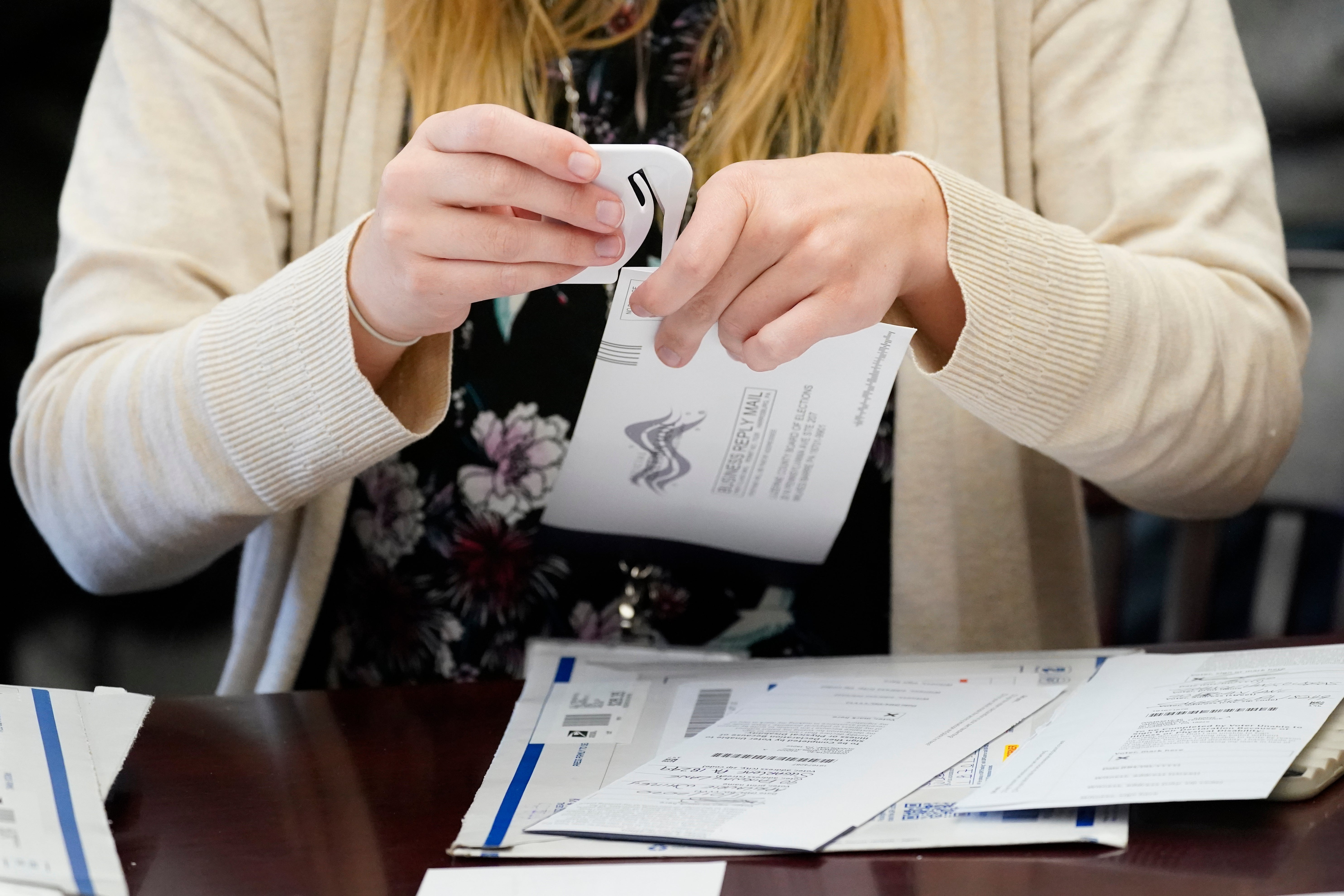EXPLAINER: The slow counting is mostly for good reasons
The slow pace of this year’s election count is fueling a lot of criticism, but it’s mostly a reflection of laudable things: greater voter enthusiasm and steps that states took to protect their residents from COVID-19

Your support helps us to tell the story
From reproductive rights to climate change to Big Tech, The Independent is on the ground when the story is developing. Whether it's investigating the financials of Elon Musk's pro-Trump PAC or producing our latest documentary, 'The A Word', which shines a light on the American women fighting for reproductive rights, we know how important it is to parse out the facts from the messaging.
At such a critical moment in US history, we need reporters on the ground. Your donation allows us to keep sending journalists to speak to both sides of the story.
The Independent is trusted by Americans across the entire political spectrum. And unlike many other quality news outlets, we choose not to lock Americans out of our reporting and analysis with paywalls. We believe quality journalism should be available to everyone, paid for by those who can afford it.
Your support makes all the difference.The slow pace of this year’s election count is fueling a lot of criticism, but it's mostly a reflection of laudable things: greater voter enthusiasm and steps that states took to protect their residents from COVID-19
THE ENTHUSIASM FACTOR
Even though the count is not yet complete, President Donald Trump has easily surpassed the number of votes he got four years ago: more than 70 million so far, versus about 63 million in his victorious 2016 run. Meanwhile, Democrat Joe Biden has gained some 73.9 million votes, versus the 65.9 that Hillary Clinton got.
All in all, some 15 million more voters participated in this year’s presidential election than in the one four years ago. Congratulations, America.
THE PANDEMIC FACTOR
Hoping to prevent long lines of people having to gather during a pandemic, states decided to make it made it easier to vote by mail, and therefore safer for everyone.
States such as Minnesota, North Carolina and Nevada extended the deadlines for when ballots could be received. Nebraska and Iowa joined the ranks of states that send an absentee ballot application to every registered voter. New Jersey and California mailed ballots to every registered voter, whether they requested it or not.
Millions of voters took states up on the offer and chose to vote by mail rather than in person on election day. For some states, that has meant a slowdown in the tabulation of results because votes received by mail often take longer to process than ballots cast at polling places.
THE EXPERIENCE FACTOR
Some states have done much better than others processing mail-in ballots.
States such as Florida and North Carolina learned from experience and allowed election officials to process mail ballots in the weeks leading up to election day.
In Florida, clerks can start counting ballots 22 days before an election. In North Carolina, beginning five weeks before the election, county boards insert approved ballots into a voting machine, allowing for a prompt tabulation on Election Day.
But other states such as Michigan, Pennsylvania and Wisconsin, all with Republican-led legislatures and all of them swing states, made a conscious decision to wait so there would be no counting of mail-in ballots prior to Election Day. Michigan did eventually allow election officials to process some ballots one day earlier, but the counting of the ballot still had to wait until Nov. 3.
THE PREDICTABILITY FACTOR
As state lawmakers battled over how to process mail-in ballots, there were warnings of what was to come.
Here’s what Eugene DiGirolamo, a Republican county commissioner in Bucks County, Pennsylvania, the state’s fourth-most populous county, told The Associated Press two weeks before election day:
“My guess is if we’re only allowed to start on Election Day, it’s going to be three, four, five days after the election when we’ll have these things scanned and counted,” DiGirolamo said. “I am just scared to death that Pennsylvania is going to look really bad, especially if the election for president is close and they’re waiting for results from the battleground states like Pennsylvania truly is.”